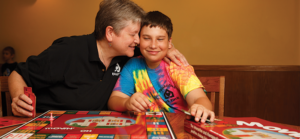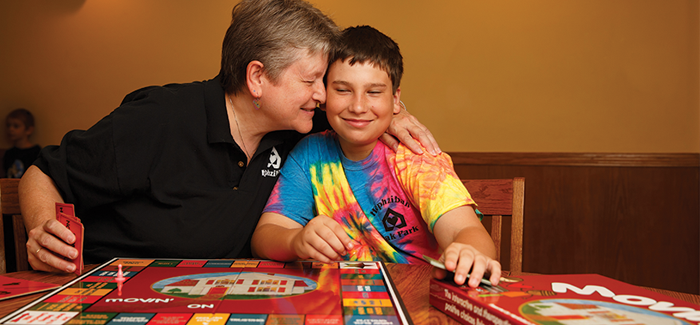When a child first comes to Hephzibah, his/her journey to healing and recovery begins with their “prime” – a primary, direct care staff member who is the child’s advocate and “go to” person. The primes helps ease the transition to the home, learning their likes and dislikes; explaining the home, the routines and the expectations in a child-friendly way; and helping them understand why they are at Hephzibah and how we will help them get better.
It’s a special, important relationship and one that often leads to a lasting and essential connection for both the staff member and the child. With their weekly “prime time,” the staff member and child build loving, trusting connections, which for many of the children is not always easy because of the trauma they have endured.
 “The prime is the child’s advocate and it is common for the two to stay in contact with one another when the child transitions to a foster family, returns home or to live with a relative,” says Jim Woywod, director of group homes. He cites a recent experience of one child who wanted to see Taylor Swift in concert. Her prime was able to get tickets and took her to the concert.
“The prime is the child’s advocate and it is common for the two to stay in contact with one another when the child transitions to a foster family, returns home or to live with a relative,” says Jim Woywod, director of group homes. He cites a recent experience of one child who wanted to see Taylor Swift in concert. Her prime was able to get tickets and took her to the concert.
Regina (Gina) Harbor, coordinator of the Diagnostic Treatment Center has been with Hephzibah for nearly 19 years and has been the prime to dozens of children over the years. “I learned very quickly that each child is different, so I have different goals for each one,” Gina says. “I spend time learning who they are and what they need.”
Gina recently reconnected with one child who is now an adult, and recalled when the child came to Hephzibah at 8 years old with matted, unkempt hair. Gina was her prime, and told the child that she had previously work in a salon, and asked if she would trust her to clean and comb her hair.
“I remember seeing the burns and scars on her neck as I washed and combed her hair, and put in cute ponytails,” Gina says. The girl is now in her 20s and told Gina how important that experience was for her. “She said I was a mother figure to her and that I gave her back her beauty. She now loves to do her hair.
“I love when they come back and lots of them do,” Gina says. “Even if they have continued to struggle, they know to come back because we’re here for them.”

